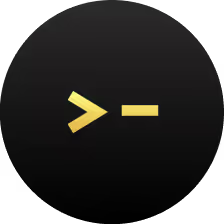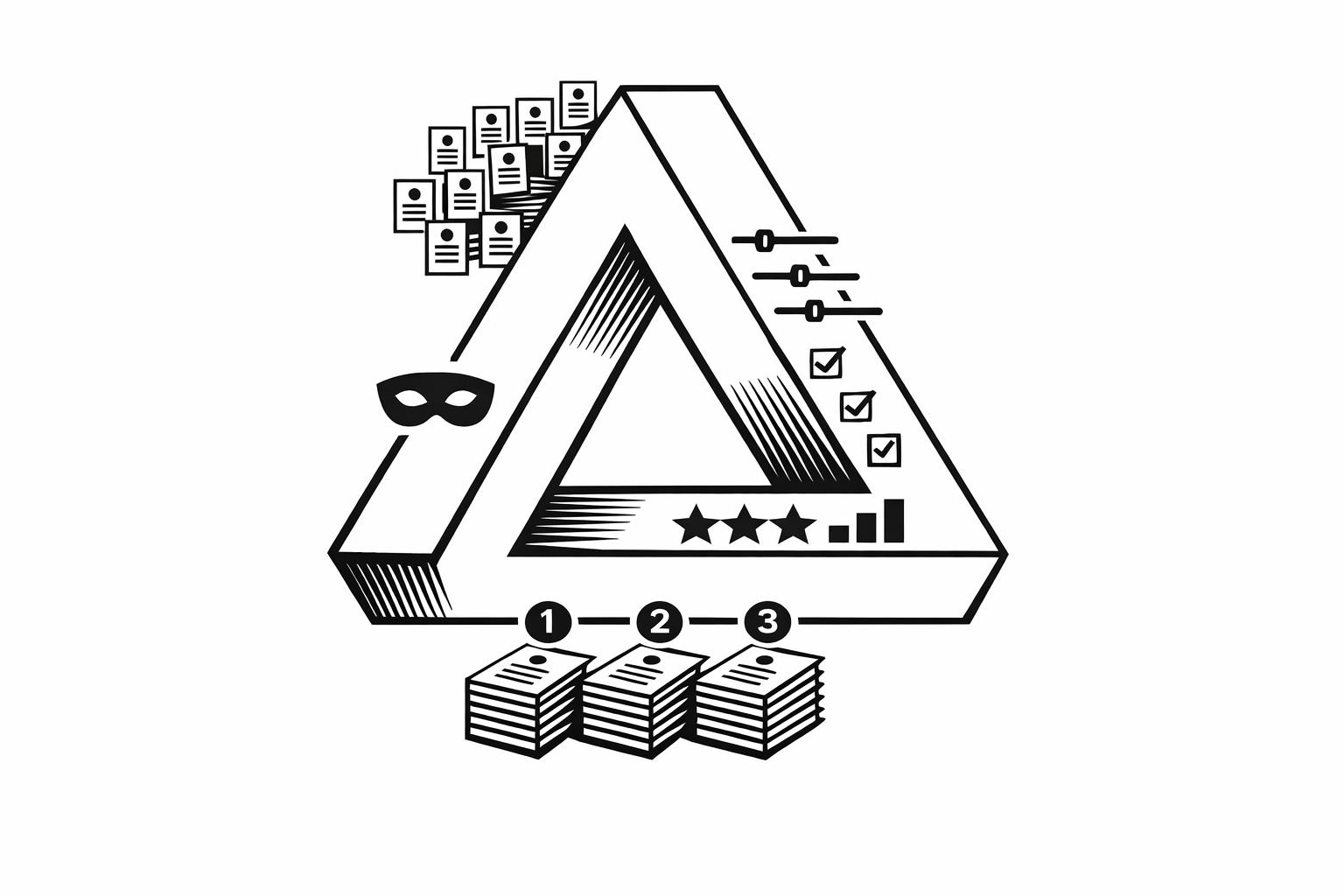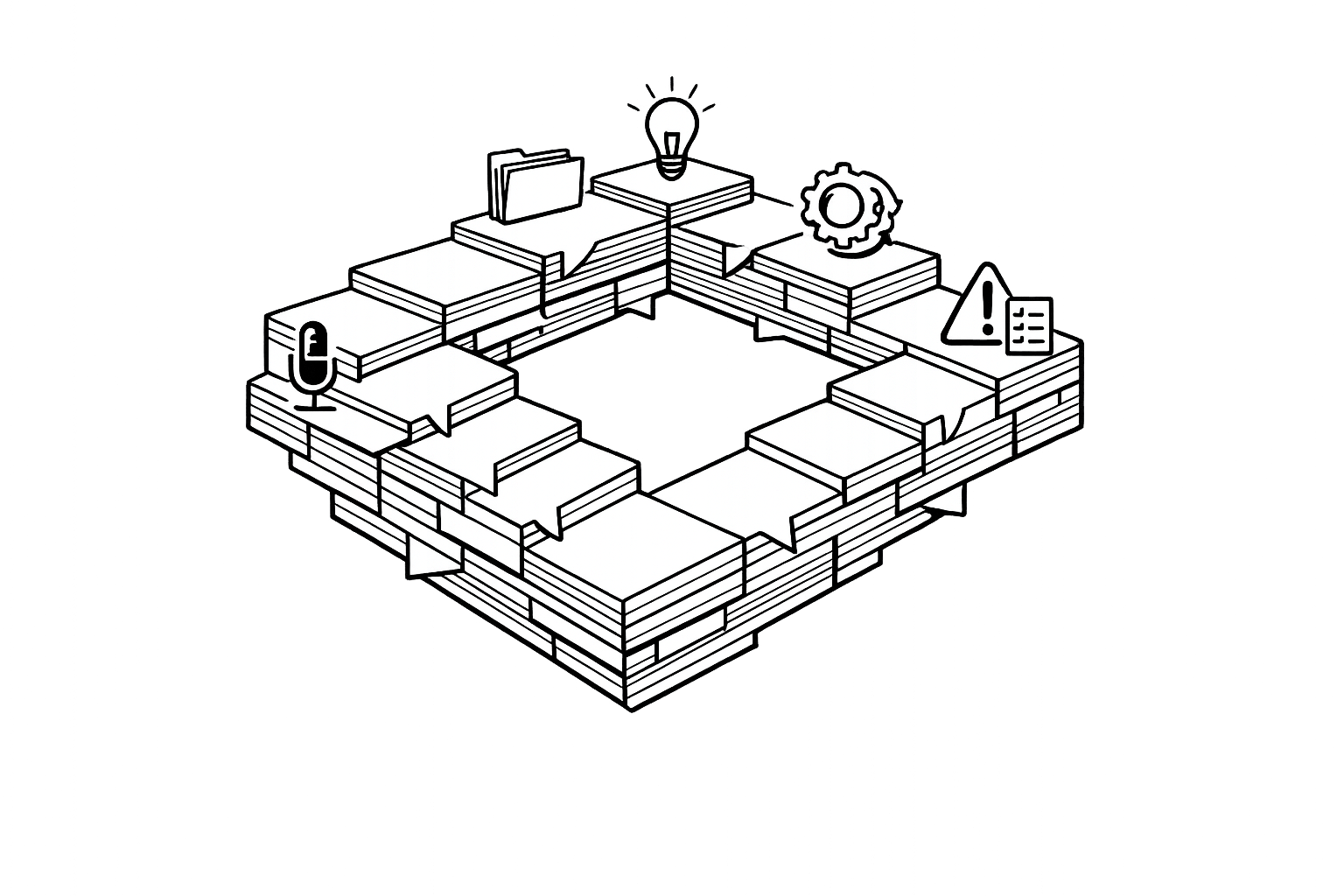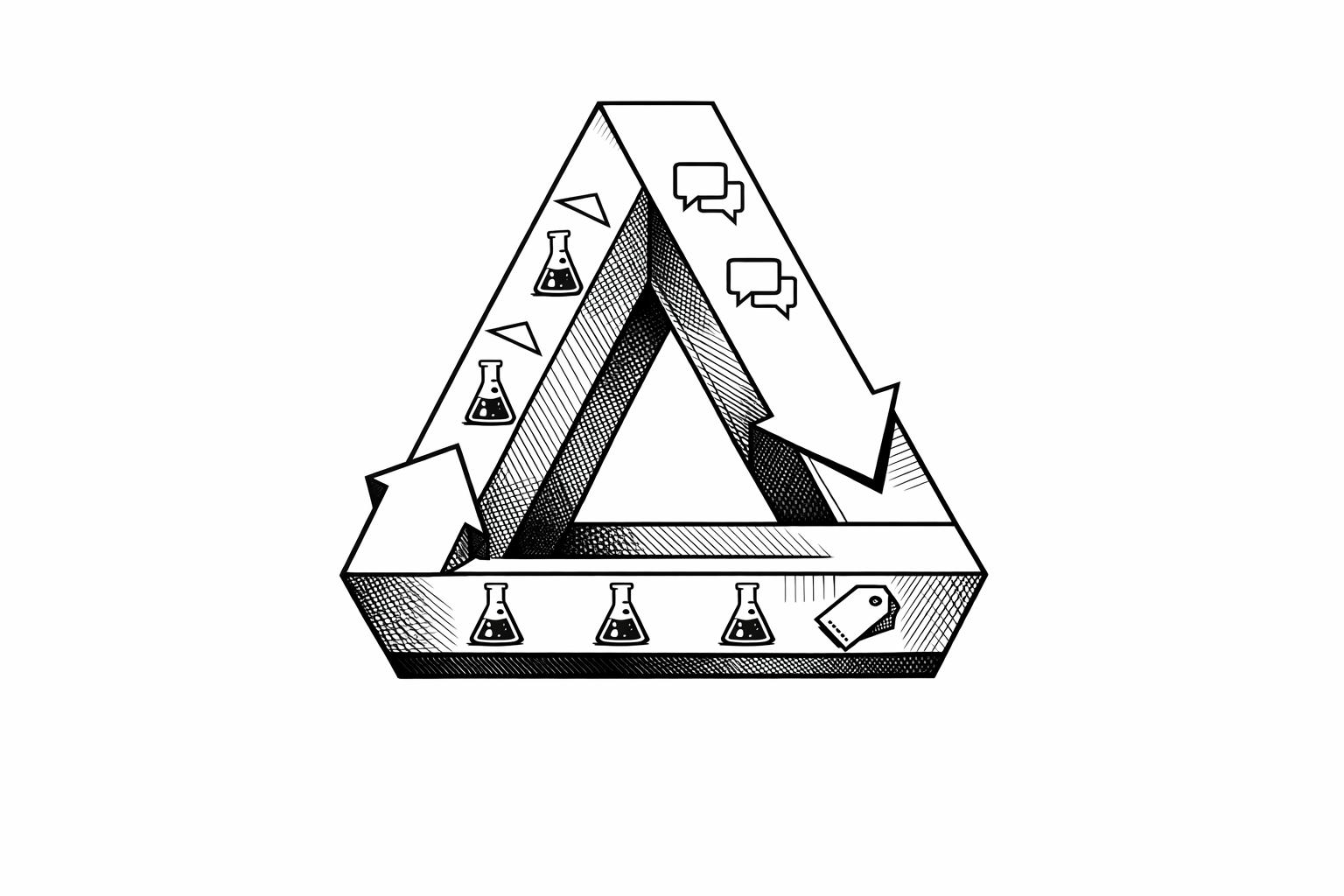How to Save Time on Prompt Engineering with Ready-Made Libraries

Prompt engineering can be tedious and time-consuming. Ready-made prompt libraries solve this problem by offering pre-tested, structured prompts for tasks like marketing, customer support, and content creation. These libraries save time, reduce trial-and-error, and improve efficiency by providing templates tailored for AI tools like ChatGPT, Claude, and Midjourney.
Key Benefits of Ready-Made Prompt Libraries:
- Pre-designed prompts: Skip the guesswork with templates optimized for specific tasks.
- Organized collections: Categories like SEO, Marketing, Business, and Writing make finding prompts fast and easy.
- Customizable templates: Modify prompts to fit your brand voice or industry-specific needs.
- Regular updates: Stay aligned with evolving AI models and ensure consistent results.
- Cost savings: Reduce time spent drafting and API usage costs.
For example, God of Prompt offers over 30,000 categorized prompts, including specialized packs for solopreneurs, marketing, and productivity. Pricing starts with free options or bundles like the $150 Complete AI Bundle for lifetime access.
Why It Matters:
Whether you're a solo entrepreneur or part of a team, these libraries simplify workflows, improve collaboration, and deliver consistent outputs. By organizing and customizing prompts, you can measure their impact on productivity and ROI, ensuring long-term success.
Pro Tip: Start by identifying your key use cases, choose a library that fits your needs, and track the time and cost savings. Ready-made prompt libraries are practical tools to streamline AI-driven tasks and focus on what matters most.
Top 7 Prompt Libraries for Unlimited Prompts
Key Features of Effective Prompt Libraries
Prompt libraries that truly make a difference focus on three key aspects: organization, adaptability, and ongoing support. These features are essential for professionals looking to save time and maximize results in prompt engineering.
Clear Organization and Categories
The most effective prompt libraries are designed with clear categories that align with real-world business needs. For instance, God of Prompt's AI Prompt Library organizes its massive collection of over 30,000 prompts into categories like Finance, E-Commerce, Sales, Education, Solopreneurs, SEO, Productivity, Writing, Business, and Marketing for text-based AI tools. It also offers specialized sections, such as Architecture, Art & Design, and Photography, tailored for image-generation platforms like Midjourney.
This structured approach is particularly valuable for small businesses. The platform even highlights the number of prompts available in each category: Business (420 prompts), Marketing (354 prompts), SEO (320 prompts), Writing (411 prompts), Solopreneurs (370 prompts), and Productivity (386 prompts). Such precise categorization ensures you can quickly find exactly what you need, whether you're working on email campaigns, crafting product descriptions, or refining customer service scripts.
With this level of organization, users can not only locate relevant prompts in seconds but also focus on fine-tuning them for specific tasks, making the entire process faster and more efficient.
Customization and Flexibility
A standout feature of top-tier libraries is their ability to offer customizable templates. These templates can be tailored to suit industry-specific needs, branding guidelines, or unique workflows.
For example, if your business requires prompts that use specialized terminology or reflect a distinct brand voice, a good library provides the flexibility to modify and combine prompts for more tailored solutions. Testing and refining these prompts further allows you to build a collection that consistently meets your goals.
This adaptability is especially important for businesses navigating niche markets or complex processes, as it ensures the prompts remain relevant and effective in delivering results.
Platform Support and Regular Updates
Prompt libraries must also provide broad platform support and frequent updates to remain effective. Supporting multiple AI models, such as ChatGPT, Claude, and Gemini, offers users flexibility while reducing costs and improving output quality.
Regular updates are equally critical. AI models are constantly evolving, and libraries need to keep pace to maintain their usefulness. Studies show that frequent updates can improve response accuracy by up to 20%. Effective libraries often include version control systems, allowing users to track changes or revert to previous versions when necessary.
This ongoing maintenance ensures that prompts stay relevant and continue to deliver value as technology advances. Companies that adopt structured prompt libraries report 85% AI adoption rates among employees, compared to just 23% for those relying on uncoordinated usage. This demonstrates how proper support and updates create a solid foundation for successful AI integration across teams.
How Prompt Libraries Solve Common Business Problems
Ready-made prompt libraries tackle everyday challenges businesses face, offering tested templates to streamline workflows and save time.
Faster Marketing and Content Creation
Marketing teams often deal with the repetitive task of creating content, from ad copy to product descriptions and social media posts. Balancing creativity with brand consistency can eat up hours of a workday.
With pre-built prompts, SEO content creation becomes a breeze. Using established, SEO-focused templates, marketers can craft optimized content without needing expert-level technical skills. For instance, God of Prompt's library includes a collection of SEO-driven prompts that help businesses improve their search engine visibility.
Social media management also gets a boost. Each platform - whether LinkedIn, Instagram, or Twitter - has its own audience and style. Structured prompt templates allow social media managers to create engaging posts tailored to each platform's unique requirements. This ensures consistent posting schedules while maintaining the right tone and format for each channel.
Email marketing campaigns benefit greatly as well. Instead of struggling to come up with compelling subject lines or effective calls to action, marketers can rely on tested templates. These prompts simplify the entire process, helping teams create impactful email content faster and more efficiently.
Better Productivity for Entrepreneurs
Prompt libraries aren't just for marketing; they can also simplify internal operations, especially for solo entrepreneurs and small business owners who juggle multiple roles.
For instance, administrative tasks like customer service can be automated with pre-made templates. Using prompts for routine communications ensures professionalism while saving time. God of Prompt's Solopreneurs collection is specifically tailored to help entrepreneurs handle these everyday challenges.
Financial planning, often daunting without a finance background, becomes manageable with prompts designed for tasks like cash flow analysis, budgeting, and investment evaluations. These templates reduce the need for costly external consultations, empowering entrepreneurs to handle complex calculations on their own.
Even product development benefits from structured prompts. Entrepreneurs can use them to conduct market research, prioritize features, and analyze user feedback. By providing a clear framework, these prompts free up time for more strategic and creative decision-making.
This level of automation not only enhances personal productivity but also lays the foundation for smoother team collaboration when the business grows.
Improved Team Collaboration
Prompt libraries don't just boost individual productivity - they also help teams work better together. When team members use inconsistent prompts or styles, it can lead to miscommunication and duplicated efforts. Shared prompt libraries solve this problem by standardizing communication across departments like marketing, sales, and customer service. This ensures a consistent tone and language, reinforcing the brand's identity and reducing confusion at customer touchpoints.
These libraries also encourage knowledge sharing. Seasoned team members can share their most effective templates with newer colleagues, ensuring valuable insights are preserved and passed along.
For cross-functional projects, having compatible prompt structures across departments fosters smoother collaboration. Teams can align their efforts more easily, improving communication and reducing friction in workflows.
In short, ready-made prompt libraries not only improve productivity but also strengthen team dynamics, making businesses more efficient and cohesive.
sbb-itb-58f115e
How to Choose the Right Prompt Library for Your Needs
Picking the right prompt library can make a huge difference in productivity. With over 90% of workplace interactions now involving AI in some capacity, finding a library tailored to your needs is essential for long-term efficiency and success.
Identify Your Main Use Cases
Start by figuring out what you need the library for. Are you focused on content creation, automating customer service, or financial planning? Each prompt library is designed with specific goals in mind, so understanding your primary use cases will help narrow down your options.
- For content creators, look for libraries with strong writing, SEO, and social media prompts. For example, God of Prompt offers specialized packs like the Writing Pack and the Complete AI Bundle, which cater to both niche content needs and broader business applications.
- Entrepreneurs and small business owners often need a more versatile collection. One day it might be financial analysis, the next it could be customer service. A diverse library, such as God of Prompt's Solopreneurs collection, can handle these varied demands.
- Enterprise teams should focus on tools that support collaboration. Look for libraries with features like threaded comments, permission controls, and workflows similar to pull requests. These features ensure multiple team members can work on prompts without sacrificing quality or consistency.
Also, consider the AI platforms you’re using. While some libraries focus solely on ChatGPT, God of Prompt offers templates for multiple platforms, including ChatGPT, Claude, Grok, Midjourney, and Gemini AI. Matching your use cases with the right prompt collection will help streamline your workflows and save time.
Budget and Value Assessment
Prompt libraries range from free collections to premium options, and the price often reflects the quality and depth of the content. Free libraries might work for casual use but often lack the organization and depth required for business purposes.
When evaluating cost, think about time savings rather than just the upfront price. Well-structured prompts can cut API costs by up to 76% while maintaining or even improving the quality of the output. This can translate to significant savings over time.
For example, God of Prompt provides various pricing options to fit different needs:
- The free plan includes 1,000+ ChatGPT prompts and 100+ Midjourney prompts, great for beginners.
- The $37 Writing Pack is tailored for content creators with specific needs.
- The $150 Complete AI Bundle is ideal for businesses requiring comprehensive coverage across multiple functions.
To assess value, consider potential productivity gains. For instance, a marketing manager earning $75,000 annually who saves 10 hours a week using prompt templates could see weekly savings of around $360. Over a year, this adds up to $18,720 in productivity gains - making even premium libraries a worthwhile investment.
Ad-hoc prompting, on the other hand, often leads to inconsistent results and hidden costs. A well-organized library can eliminate these inefficiencies and provide consistent, high-quality outputs.
Integration and Growth Potential
Prompt libraries are quickly becoming the backbone of AI workflows, especially as we move further into 2025. This makes scalability and integration key considerations when choosing the right library.
Look for libraries that treat prompts like code, offering features like version control, automated testing, and modular designs. These features allow for seamless API or SDK integration, ensuring your prompt collection evolves as your business grows.
God of Prompt supports growth with lifetime updates, keeping your library aligned with the latest AI models and trends. Its Notion-based system adds flexibility, letting you customize and organize prompts to fit your specific workflows.
Organizational features like metadata and tagging are also important. Libraries that allow you to categorize prompts by use case, domain, role, or model type make it easier to find what you need as your collection grows. For example, tags like [Legal][Summarization][GPT-4] simplify retrieval and keep everything organized.
Customization is another factor to consider. Libraries that let you use variables and placeholders can turn a single template into thousands of tailored prompts, saving time and ensuring consistency. This adaptability means you won’t need to recreate similar prompts repeatedly as your needs change.
Finally, ensure the library integrates smoothly with your existing tools, whether it’s project management software, CRM systems, or development platforms. A seamless integration minimizes disruptions and encourages team adoption, leading to sustained productivity improvements.
Practical Tips for Using Prompt Libraries
Make the most of your prompt library by keeping it organized and tracking its effectiveness.
Organizing and Customizing Prompts
A well-structured system saves time and keeps your workflow efficient. Create a folder structure that mirrors your daily tasks, such as "Daily Tasks", "Client Work", "Content Creation", and "Administrative." This way, you can quickly locate what you need without sifting through a mess.
Label your prompts with clear, descriptive names like "Blog Post Intro – Problem/Solution Format" or "LinkedIn Post – Industry Insight Template." Avoid vague titles that make it hard to find the right tool for the job. You can also tag prompts by their purpose, industry, or the AI model they’re designed for. Tools like God of Prompt offer features to help you organize and filter prompts effortlessly.
Take customization a step further by using placeholders like [INDUSTRY] or [TARGET AUDIENCE]. This lets you adapt a single prompt to multiple scenarios. For example, a customer service template with placeholders can be tailored to handle inquiries ranging from software troubleshooting to retail returns, saving you the effort of starting from scratch each time.
For more complex tasks, try creating prompt chains. Instead of relying on a single prompt to handle everything, break the process into smaller steps. For instance, a content marketing workflow might include prompts for keyword research, outlining, drafting, and optimizing. Linking these steps ensures a smoother process and better results.
Lastly, document any tweaks or improvements you make to your prompts. This builds a knowledge base that prevents you from reinventing the wheel every time you refine a prompt.
Once your prompts are well-organized and tailored to your needs, the next step is to measure their impact.
Measuring Results and ROI
Streamlining your prompt library is only half the battle. To truly maximize its value, you need to measure its impact on your productivity and bottom line.
Start by tracking how long tasks take before and after using your prompt library. Keep a simple log for a month, noting time spent on routine activities like drafting emails, creating content, or analyzing data. Many users report significant time savings once they adopt a structured approach to prompts.
Don’t just measure speed - monitor quality too. Fast results are only helpful if they meet your standards. Use simple rating scales to evaluate the quality of AI-generated work. Over time, you’ll notice patterns that reveal which prompts deliver the best results for specific tasks.
Calculate the financial benefits of your time savings. For instance, if you earn $50 per hour and save 5 hours each week through optimized prompts, that’s an extra $250 in value per week - or about $13,000 annually. If you’re managing a team, multiply these savings across all members to see the broader impact.
If your AI platform charges based on usage, track your API costs. Well-crafted prompts often require fewer tokens to achieve the desired results, which can lower your monthly expenses. Compare your usage data before and after adopting a structured system to quantify these savings.
Consistency matters too. Assess how predictable and on-brand your outputs are over time. A well-designed prompt library should deliver reliable results, reducing the variability that often comes with ad-hoc attempts. This is especially important for teams aiming to maintain a unified voice.
Regular reviews are essential. Set up monthly check-ins to evaluate which prompts are most effective and retire those that aren’t delivering results. This keeps your library lean and focused.
Finally, document success stories. If a prompt helps you complete a major project faster or achieve better outcomes, record the details. These examples can build internal support for using prompt libraries and encourage others to adopt the system.
The goal isn’t to track every tiny detail but to gather enough data to make smart decisions about how to refine and expand your prompt library. By doing so, you can ensure it continues to deliver value over time.
Conclusion: Save Time with Ready-Made Libraries
Ready-made prompt libraries can revolutionize how you work with AI tools by saving time and boosting productivity. Instead of laboring over prompts from scratch, these libraries provide instant access to thousands of pre-optimized options designed to meet various needs.
The time and effort saved make prompt libraries a practical investment. For instance, God of Prompt's Complete AI Bundle offers 30,000 prompts tailored to key business areas for $150.00, complete with lifetime updates. This collection spans everything from routine administrative tasks to intricate content creation processes, offering resources that would otherwise take months to develop on your own.
The real advantage lies in the structured approach these libraries bring. They help ensure consistent quality, streamline onboarding, and free up your team to focus on strategic priorities. This systematic method can lead to noticeable gains in efficiency and performance.
However, the success of any prompt library depends on how well it integrates with your specific workflow. Start by identifying your most common tasks, customizing prompts to suit your needs, and tracking results to measure their impact. With a well-organized system, managing AI tasks becomes far more straightforward.
Investing in a high-quality prompt library can quickly pay off through increased efficiency, improved outcomes, and reliable tools at your fingertips. Take advantage of these ready-made libraries to simplify and enhance your AI workflows today.
FAQs
How can I choose the right prompt library for my business needs?
To choose the right prompt library for your business, start by pinpointing your goals and the tasks you want to accomplish. Think about the kind of prompts you’ll need - whether they’re for marketing campaigns, creating content, improving customer service, or handling technical workflows. Then, assess libraries based on their features, user-friendliness, and how well they fit your industry or daily operations.
For instance, some libraries are tailored for marketers and content creators, offering flexible, customizable prompts. Others cater to specific industries or include advanced AI tools for more technical needs. Focus on libraries that can help you save time, boost productivity, and clearly support your unique requirements. By aligning a library’s capabilities with your objectives, you can simplify your workflow and see better outcomes.
How can using a ready-made prompt library help save time and reduce costs?
Using a pre-built prompt library can save you a ton of time and effort compared to crafting prompts from scratch. These libraries come with ready-to-use, well-designed prompts tailored to handle common tasks, so you can focus on using them effectively rather than spending hours creating them.
This approach simplifies the prompt engineering process, cutting down on trial-and-error and reducing costs tied to manual development. The result? More efficient workflows, improved productivity, and better outcomes for AI-powered projects.
How can ready-made prompt libraries improve teamwork and ensure clear communication across departments?
Ready-made prompt libraries make teamwork smoother by enabling real-time collaboration on prompts. With features like shared access, commenting, version tracking, and approval workflows, team members can stay on the same page and work together more effectively.
These libraries act as a centralized hub for pre-designed prompts, helping ensure consistent communication across different departments. This reduces the chances of miscommunication and saves valuable time. By streamlining processes, teams can tackle AI-driven tasks with a unified strategy, ultimately improving productivity.





















